In a XML file with 100 lines of code, there is one string with a specific pattern that I want to find and write into a new text file.
What the string contains is unknown and can vary, but the pattern is the same. For example:
12hi34
99ok45
Those have in common that the length is 6 and element:
0-1: integers
2-3: characters
4-5: integers
Is there a way to use Powershell and write a script that can find the string that fit the pattern and export it in a text file?
I'm new to Powershell and scripting. Tried to Google the problem and stumbled upon Select-String, but that doesn't solve my problem. Hope some of you can guide me here. Thanks.
Edit: The string is outside the root element as some "free text". It is not a traditional XML file.
